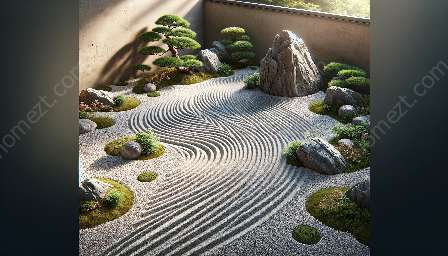Introduction:
Welcome to a transformative journey into the serene world of meditation and the timeless elegance of zen gardens. In this comprehensive guide, we will explore the profound connections between meditation, zen gardens, and their harmonious integration into the art of gardening and landscaping.
The Practice of Meditation:
Meditation is an ancient practice that has been embraced by cultures worldwide for its numerous physical, mental, and spiritual benefits. It encompasses a wide range of techniques designed to promote relaxation, build internal energy, and develop compassion, love, patience, generosity, and forgiveness. Moreover, meditation has been scientifically proven to reduce stress, improve focus and concentration, enhance emotional well-being, and promote overall mental clarity and mindfulness.
Zen Gardens: A Spiritual Oasis:
Zen gardens, also known as Japanese rock gardens or dry landscape gardens, have been captivating people with their tranquil beauty and profound symbolism for centuries. These meticulously crafted landscapes typically consist of carefully arranged rocks, gravel or sand, and pruned moss and shrubs, evoking a sense of balance, simplicity, and tranquility. Traditionally, zen gardens are intended for meditation and contemplation, serving as a visual aid to help clear the mind and find inner peace.
Ethos of Gardening & Landscaping:
The art of gardening and landscaping transcends the mere cultivation of plants and the arrangement of natural elements. It embodies a holistic approach to harmonizing outdoor spaces, connecting people with nature, and creating environments that uplift the spirit and nourish the soul. Both gardening and landscaping share the fundamental principles of balance, symmetry, sustainability, and reverence for the environment.
The Synergy of Meditation, Zen Gardens, Gardening & Landscaping:
When we contemplate the sublime synergy between meditation, zen gardens, and gardening & landscaping, we discover an intrinsic bond that transcends time, culture, and geography. The practice of meditation cultivates a profound sense of inner peace and mindfulness, which mirrors the tranquil essence of zen gardens. Similarly, the principles of balance, serenity, and natural harmony found in zen gardens resonate with the artistry of gardening and landscaping, creating spaces that inspire contemplation and evoke a deep sense of connectedness with nature.
How to Incorporate Zen Elements:
- Cultivate Mindfulness: Create inviting and peaceful garden spaces that encourage contemplation and meditation.
- Simplify Design: Embrace minimalism and create a sense of tranquility with balanced elements and open spaces.
- Balance and Harmony: Use natural materials and elements to create a sense of equilibrium and tranquility.
- Reflective Spaces: Integrate water features or reflective surfaces to evoke a sense of calm and contemplation.
- Spiritual Retreat: Design a dedicated area for meditation, incorporating elements that inspire stillness and inner peace.
Conclusion:
In conclusion, the timeless practices of meditation, the ethereal beauty of zen gardens, and the artistry of gardening and landscaping converge to offer a profound journey of self-discovery, inner peace, and connection with nature. By embracing the principles of meditation and the serenity of zen gardens, we can transform our outdoor spaces and nurture our spiritual well-being while creating environments that embody beauty, balance, and harmony.





















